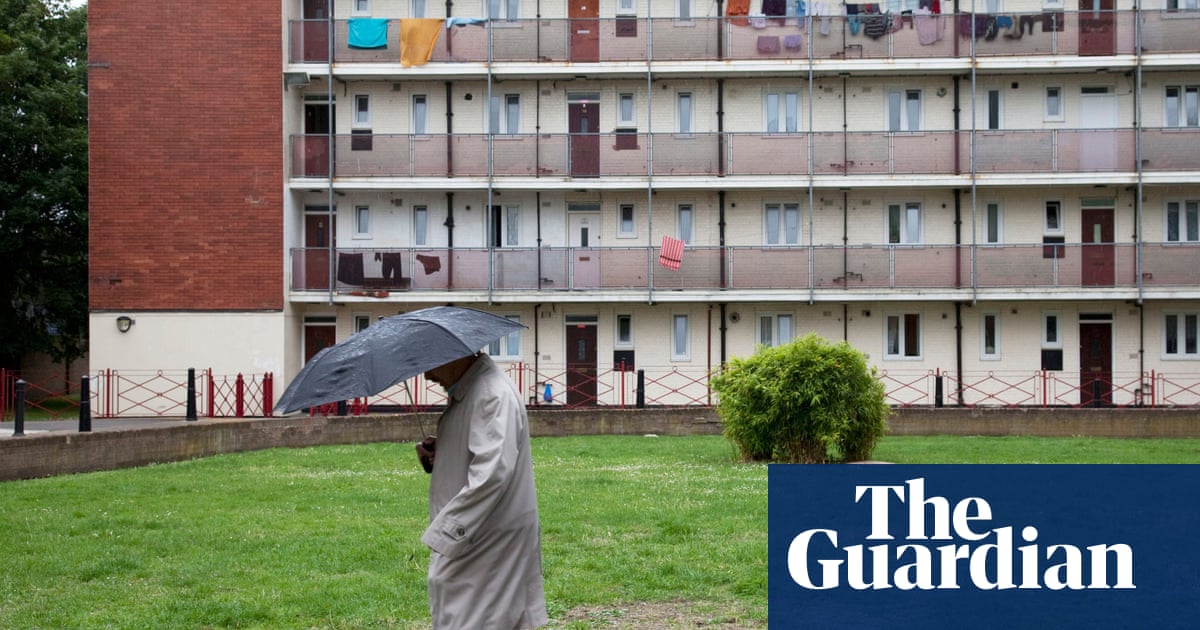The housing ombudsman has warned “simmering anger at poor housing conditions” could boil over into social tension as his office recorded a 474% increase in complaints about substandard living conditions since 2019/20.
Richard Blakeway, the housing ombudsman forEngland, said repairs were now the single biggest driver of complaints his office deals with, accounting for 45% of its workload.
“Without change we effectively risk the managed decline of one of the largest provisions of social housing in Europe,” he said. “To replace these homes would take more than 60 years at recent building rates.”
He said it was “neither fanciful nor alarmist” to suggest the growing anger at housing conditions could become “social disquiet”, saying the “shock ofGrenfell TowerandAwaab Ishak’s deathresonate still”.
“I travel across the country to different public meetings and there is a sense of people feeling invisible, of voices not being heard, their issues not being taken seriously, a lack of respect and dignity in the way in which residents have been treated. It is leading to a really serious fracturing of trust, which in some cases is irreparable,” he said.
In a new report on social housing repairs and maintenance, theHousingOmbudsman Service reported a 474% increase in complaints about substandard living conditions between 2019/20 and 2024/25, with 72% identified as stemming from poor practice.
Despite social landlords spending a record £9bn on repairs and maintenance in 2023/24, the ombudsman – which resolves disputes between residents and social landlords – ordered £3.4m in compensation for poor living conditions in 2024/25.
“We’ve seen an unprecedented increase in complaints, which far exceeds the rising complaints in other sectors. What we’re seeing is exponential in comparison to other ombudsmen,” Blakeway said.
The report is based on a review of hundreds of cases and more than 3,000 responses to a call for evidence. It features dozens of examples of bad practice, including a child’s bedroom window being boarded up for four years rather than replaced and collapsed ceilings containing asbestos left unrepaired for two years.
Ageing, poor-quality housing stock and the rising cost and complexity of repairs were two of the key drivers behind the rise in complaints. Almost half (45%) of social homes in England were built before 1964, and the percentage with damp and mould has risen from 4% in 2019 to 7% in 2023.
Blakeway said policies had not kept pace with living standards, and called rules that say kitchens and bathrooms need only be replaced every 20 and 30 years respectively “a statement absent of aspiration from the world’s sixth wealthiest nation”.
He added: “The baseline set for the quality of social housing is completely detached from the reality of consumer experience elsewhere. It’s completely inadequate in the 21st century.”
The report found that landlords were “effectively rationing repairs services”, with one landlord’s policy referring to doing some repairs only when “resources are available” and others saying they would deal with emergencies only.
It also found incidents of cases being closed before hazards were resolved because of “unevidenced claims that the resident had denied access”.
Blakeway called for a “transformative overhaul” of the sector, including a national tenant body to strengthen the rights of residents and increase landlord accountability, as well as long-term funding for the sector.
“These homes are only getting older, so we need a fundamental rethink on how we do maintenance and the investment required to preserve the social housing legacy which previous generations have worked hard to build,” he said.
He called the model for maintaining existing social homes “unsustainable” and “a significant risk to the government’s vital housebuilding ambitions”.
The government has announced plans to build 1.5m homes to tackle the country’s housing crisis, but there are reports ofinternal disputes over the level of funding for social housing.
Awaab’s law, named after two-year-old Awaab Ishak, who was killed by mould in a social housing flat in Rochdale in 2020, is due to come into force from October, but the government has beencriticised for delaying its full implementationto 2027.
From October, social landlords in England will have 24 hours to make emergency repairs, including to damp and mould, but will have until 2027 to begin fixing other hazards immediately, including asbestos and contaminated water supplies.
Blakeway called the law “desperately needed” but still too reactive. “It improves the response, but it doesn’t prevent the issues,” he said.
“Where is our aspiration? Landlord systems just haven’t modernised to move from a reactive approach to maintenance to a predictive approach, and that often creates long delays to repairs,” he added.
A spokesperson for the Ministry of Housing,Communitiesand Local Government said: “Everyone deserves to live in a safe, secure home and despite the dire situation we have inherited, we are taking decisive action to make this a reality.
“We will clamp down on damp, mould and other hazards in social homes by bringing in Awaab’s law for the social rented sector from October, while we will also introduce a competence and conduct standard for the social rented sector to ensure staff have the right skills, knowledge and experience to do their jobs effectively.”
